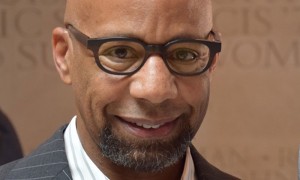[Editor’s Note: This is the first in an occasional series called “The Thread,” where AJR.org publishes email conversations about a current topic in new media.
The following exchange is about the controversy surrounding a story that ran in Grantland, a longform sports journalism site. The Grantland story triggered backlash on Twitter and criticism from the LGBT community due to how a recent article handled a revelation the writer learned while researching the credentials of a golf club inventor: She was a transgender woman. That fact was a secret she had kept, and one the writer told one of her investors. The woman, Grantland reported, committed suicide while its writer was researching the story. The full Grantland story can be read here, along with a note from the editor, as well as a post from the ombudsman of ESPN, the parent company of Grantland.
AJR editors Sean Mussenden and Lisa Rossi and intern and University of Maryland senior Mary Clare Fischer.
FROM: SEAN MUSSENDEN
TO: MARY CLARE FISCHER, LISA ROSSI
Mary Clare and Lisa,
As a slavishly devoted Bill Simmons fanboy, a lover of long stories and an avid, if terrible, golfer, the Grantland tale “Dr. V’s Magical Putter,” landed right in my wheelhouse.
I devoured it eagerly, fascinated by the mysterious inventor behind this supposedly revolutionary golf club. The writer, Caleb Hannan, dropped just enough hints throughout the story to suggest that Dr. V wasn’t who she seemed. Though it may be a cliched trope at this point, I happen to love the story structure Hannan employed: the “reporter takes reader along on a voyage to discover the truth.”
My first inkling that this trope may not have been right for this story came with Hannan’s big reveal that Dr. V was not who she claimed to be. Her academic credentials and work background did not check out. And, Hannan took pains to note, she was “born a boy” under a different name.
He wrote: “What little else I know about Stephen Krol in the years before and after he changed his name comes from people who knew him, but didn’t know him well.”
When I hit that paragraph, I realized something was amiss. I must confess I’m woefully undereducated on the most sensitive way to write about transgender men and women.
But I do know enough to know that if a person self-identifies as a woman, as Dr. V did, it’s not appropriate to use the pronoun “him.” It seems to me that the editors at Grantland should have known this, if only because the pronoun debate was thrust upon journalists after Bradley Manning announced his intention to become Chelsea Manning and many news organizations kept right on identifying Manning as “him” or “he.”
I deeply respected Grantland Editor-in-Chief Bill Simmons’s mea culpa editor’s note, but they just should have known better — or found someone who did.
Back to the “reporter takes us on a journey” story structure. It became apparent to me that this was the wrong narrative approach when I reached the third-to-last paragraph(!) and learned that Dr. V had committed suicide. That struck me as a deeply insensitive way to include the news of her death. I don’t agree with those saying Hannan is to blame for her suicide; that’s patently ridiculous.
But tacking it on the end felt, well, tacky. After the editors found out she committed suicide, the story needed to be ripped up and the sad fact of her death needed to be dealt with much more sensitively near the top of the story.
So, I’ll ask you, what could the editors have done to handle this more sensitively from the get go?
Sean
FROM: MARY CLARE FISCHER
TO: SEAN MUSSENDEN, LISA ROSSI
Sean and Lisa,
I’ll start by going backwards. The second thing Grantland editors should have done, if they were determined to publish the story, is to run the story by someone within the transgender community, as multiple outlets have recommended.
In November, Poynter published a list of rules to follow when reporting on the transgender population, a good start to a larger problem. However, I believe these guidelines should be used only in extreme deadline situations. Journalists make their livings reporting on what they understand, and it’s difficult to relate to someone who was born a man but considers herself a woman unless you’re in the same uncomfortable boat. The best way you can avoid insensitive situations like the one found in the story about Dr. V is to send it straight to an expert.
The first thing, though, was to consider whether they needed to publish this story at all. Many people have suggested writing this story and leaving the transgender piece out. I have a hard time figuring out how the story would have made sense this way; Dr. V created her new persona and constructed a network of lies, according to the Grantland piece, as a result of her transition.
If these details hadn’t been included, I think there would have been a noticeable hole in the piece that would have left readers confused. But why the need to write the story at all? The original subject (golf) was not a matter of life and death. It’s not a matter of public interest to expose the fake science behind a magical putter, even if investors were involved. Golf aficionados might gasp at this statement, but I ask them to tell me which is more important: a piece of steel or a human life. I think I’ll take the latter.
Mary Clare
FROM: LISA ROSSI
TO: SEAN MUSSENDEN, MARY CLARE FISCHER
Sean and Mary Clare,
For me, the Grantland piece and its surrounding controversy bring back many memories of my own time as a young newspaper reporter. There were plenty of moments when I was unsure what information I should share about a person I was writing about and what I should keep out of the paper.
I recall two examples when I stumbled upon information that a person had kept secret over the course of his or her life.
In one, I was sent to cover the incredibly sad funeral for a woman who police said killed herself and her two young children. I still shudder at the memory — all three shared an open casket. During the eulogy, a brother of the woman shared an outrageous accusation against the father of the children that he said led to their deaths.
The accusation was so outrageous that half of the people attending this funeral in rural Iowa stood up and abruptly walked out.
Not knowing quite what to do next, I interviewed some people standing outside for reactions to the accusation. I then immediately called police to see if a formal complaint on it had ever been issued.
It hadn’t.
I declined to ever reveal what this accusation was, since it hadn’t been confirmed by official sources. It very well could have been false and I would have been incredibly irresponsible to print it. I wonder today: Should I have investigated this further? If I had dug deeper, could I have revealed important truths about children who are victims of a crime?
In another case, I did reveal a secret about someone who had made the news. In November of 2005, I wrote a newspaper story under the headline “Transgender’s death reveals secrets, lies.” The story charted the secrets a woman who had been found dead in Iowa kept from loved ones, including, as I wrote, a “secret sex change operation” she had undergone.
As I reflect on it today, I wonder if I made a horrible mistake, outing this person, even in her death, to those who may not have known her past. The headline also may have been handled insensitively. The GLAAD media reference guide flags “transgenders” as a “problematic term” and advises that reporters instead use the terminology “transgender man,” or “transgender people,” for example.
I remain unsure about the right way to proceed here in an age of (hopefully) more awareness and sensitivity. As journalists, our job is to tell the truth. It’s that simple. Sometimes the truth might be someone’s secret. How do we proceed then? How do we weigh when the information might provide enlightenment and understanding or when it would be profoundly damaging and inhumane to reveal it?
Lisa
FROM: SEAN MUSSENDEN
TO: MARY CLARE FISCHER, LISA ROSSI
Mary Clare and Lisa,
I think you ask an important question, Mary Clare, in whether this story needed to be published at all. Certainly many are asking it. Few stories are so important that they HAVE to be published, but I think this is one that deserved to be published even if it’s not exactly the Pentagon Papers.
The main test, to me, is that it was very interesting. I’m not sure it’s fair to ask a journalist to balance the theoretical importance of a story with the remote possibility that the subject of a story will kill themselves.
To reiterate, Hannan did not kill Dr. V or cause her to kill herself. Suicide is always a choice, one that she, unfortunately, made. Is it fair to say fear of publication of this article helped convince her that suicide was the right choice? Sure, that’s possible. But that’s not on Hannan.
And certainly when he was reporting this story, he could not have known she would end her life. I hope this extremely sad case does not prevent journalists from publishing good or interesting or important stories because of the remote possibility that the subject might kill themselves.
And look, Dr. V was not innocent here, according to Hannan’s reporting. The fact that she had a sex change is totally immaterial to the larger point this story made (though I agree it would have been impossible to expose the fraud without revealing she once had a man’s name). If the story is accurate, she misled people about her background. According to the story, she used manufactured educational and employment credentials to help sell a putter.
And, as Hannan demonstrated, those phony credentials played a big part in the golfing public’s belief in the value of that putter. It’s entirely possible that fear of being exposed as a liar led her to believe that suicide was the right choice. We just don’t know what she was thinking.
Thanks for sharing that Poynter list of rules, Mary Clare. And thank you, Lisa, for sharing the GLAAD reference guide. I hope every journalist bookmarks them.
Lisa, thank you for sharing the 2005 story you wrote that included the phrase “secret sex change operation.” It’s obvious now, with the gift of hindsight, that was a mistake. Would we refer to a vasectomy or tubal ligation as “secret family planning surgery” just because someone didn’t share it with the entire world? I’m sure I’ve written similarly insensitive things. You ask: how do we proceed? I think the key is to always question our assumptions about whether we’re making the right choices. And to know enough to ask for help from experts in these things.
Sean
FROM: MARY CLARE FISCHER
TO: SEAN MUSSENDEN, LISA ROSSI
Sean and Lisa,
I think it’s important to distinguish that I’m not saying Hannan caused Dr. V to kill herself — we can only speculate on her various motivations. I’m talking about post-mortem publishing; especially now that Dr. V has died, I see no reason to out her to her investors. It seems like an insensitive way to pay tribute to someone and by publishing the story, you’re either choosing to tell readers about the background behind a putter or exposing the vulnerabilities of the life of someone who was clearly in pain. By that, I think you’re putting a greater value on storytelling than respect.
Mary Clare
FROM: LISA ROSSI
TO: SEAN MUSSENDEN, MARY CLARE FISCHER
Sean and Mary Clare,
Thanks so much for your thoughts on the Grantland story.
I’d like to end this thread with two questions that perhaps our readers could address in our comments section:
- Did Grantland make a mistake in publishing the story about Dr. V? Should the story have been pulled in its entirety, or completely revamped, following the tragic death of the subject?
- How can journalists do a better job reporting about the transgender community and transgender people? If someone wants to keep that fact about him or herself secret, are we obligated to honor that, even if we might deem it newsworthy? What should the rules be?
Lisa









Leave a Comment